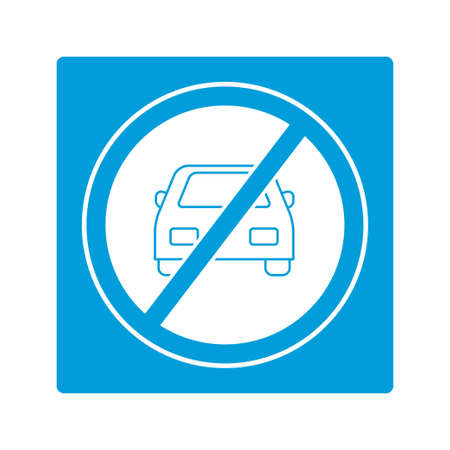Why Car Battery Health Matters for UK Drivers
When it comes to everyday motoring in the UK, the reliability of your car’s battery is often underestimated until something goes wrong. A dependable battery is essential not just for starting your engine, but also for powering crucial electrical systems—especially during the darker, colder months that are typical across Britain. With unpredictable weather, frequent short journeys, and stop-start urban traffic, UK motorists place unique demands on their vehicle’s battery health. In fact, local driving habits such as multiple short trips can prevent your battery from fully recharging, making it more prone to failure when you least expect it.
| Key Reasons Battery Health is Vital | Impact on UK Motorists |
|---|---|
| Cold Weather | Reduces battery efficiency and increases risk of breakdowns during winter |
| Short Urban Journeys | Prevents full battery recharge, leading to premature wear |
| Heavy Use of Electrical Systems | Increased strain from heaters, lights, and infotainment systems in British climate |
A reliable car battery means peace of mind whether you’re navigating congested city streets or embarking on a long motorway journey. Understanding the warning signs of a failing battery is essential for every UK driver who wants to avoid inconvenient—and potentially costly—breakdowns. In the following sections, we’ll explore exactly what these signs are and how you can stay ahead of potential issues.
Common Warning Signs of a Failing Battery
Recognising the early warning signs of a failing car battery can save UK motorists from unexpected breakdowns and costly repairs. The unpredictable British weather, from chilly mornings to damp afternoons, can put extra strain on your vehicle’s battery. Here are some common symptoms that often signal your battery may be reaching the end of its life:
Dim Headlights and Interior Lights
If you notice your headlights or dashboard lights appear dimmer than usual, especially when starting your car in low light conditions, it could mean the battery is struggling to supply enough power. This is particularly noticeable during the dark winter months across the UK.
Slow Engine Turnover
A sluggish engine start is one of the most obvious signs of a weakening battery. When you turn the ignition key or press the start button, if the engine cranks slowly or takes longer than normal to fire up, your battery may be losing its charge capacity. This issue tends to become more frequent as temperatures drop.
Electronic Glitches
Modern vehicles rely heavily on electronics. If you’re experiencing unusual behaviour such as malfunctioning infotainment systems, flickering dashboard displays, or erratic operation of windows and wipers, your battery could be at fault. These issues are more pronounced in newer cars with advanced technology.
Quick Reference Table: Key Battery Warning Signs for UK Drivers
| Symptom | Description |
|---|---|
| Dim Headlights | Lights appear less bright than usual, especially at startup or idle |
| Slow Engine Crank | Engine struggles or hesitates before starting |
| Electronic Malfunctions | Unusual behaviour in electronic systems like radio, windows, or dashboard |
When to Take Action?
If you spot any of these warning signs, it’s wise to have your battery tested by a professional as soon as possible. Many UK garages and motoring organisations offer quick battery checks—often free of charge—helping you avoid being stranded at the roadside.

3. Impact of British Weather on Battery Life
In the UK, our unpredictable weather plays a significant role in how long a car battery lasts. Unlike some countries with more stable climates, British motorists must contend with frequent rain, high humidity, and colder winters—all of which can accelerate battery deterioration.
How Weather Affects Your Battery
Batteries function best within a moderate temperature range. Extreme cold slows down the chemical reactions inside the battery, reducing its efficiency and making it harder for your car to start. Conversely, persistent dampness and humidity can cause corrosion around the terminals, leading to poor electrical connections.
Typical UK Weather Challenges
| Weather Condition | Impact on Battery |
|---|---|
| Frequent Rainfall | Increases risk of terminal corrosion and short circuits |
| High Humidity | Accelerates rusting and degrades battery casing |
| Colder Winters | Slows chemical reactions, reduces starting power, increases risk of flat batteries |
| Mild Summers | Generally less impact but still requires vigilance for water loss in older batteries |
Why UK Drivers Should Be Extra Vigilant
Given these unique climatic challenges, it’s crucial for UK motorists to perform regular battery checks—especially before winter sets in or after prolonged periods of wet weather. Keeping an eye out for early warning signs can help you avoid breakdowns and expensive callouts, ensuring your vehicle remains reliable year-round.
4. How to Test and Monitor Your Battery’s Condition
Keeping an eye on your car battery’s health can help you avoid those inconvenient breakdowns and unexpected costs. Whether you prefer checking things yourself at home or relying on professional UK motoring services, here are some practical steps to monitor your battery’s condition.
DIY Battery Health Checks at Home
If you’re comfortable getting hands-on, a few basic checks can give you a good idea of your battery’s state. Here’s what you’ll need and the key steps to follow:
| Check | What to Do | What to Look For |
|---|---|---|
| Visual Inspection | Open the bonnet and inspect the battery case. | Look for corrosion, cracks, bulges, or leaking fluid. |
| Terminal Check | Examine the battery terminals and cables. | Ensure they’re clean, tight, and free of corrosion or white powdery deposits. |
| Battery Voltage Test | Use a digital multimeter (widely available from UK retailers). | A healthy battery should read around 12.6V when fully charged. |
| Dashboard Warning Lights | Turn on the ignition and observe warning symbols. | A red battery light could indicate charging issues or a failing battery. |
When to Consult a UK-Based Garage or Motoring Service
If you notice any concerning signs, or if your DIY checks suggest low voltage or visible damage, it’s wise to seek professional help. Many UK garages offer free or affordable battery checks. Organisations like the AA, RAC, and Halfords Autocentres provide thorough diagnostics using specialist tools, testing your battery’s ability to hold charge under load—something that can’t be replicated at home without advanced equipment.
The Benefits of Professional Testing
- Accurate Diagnosis: Technicians use conductance testers for precise results.
- Warranty Advice: Guidance on whether your battery is still under warranty with leading UK brands.
- On-the-spot Replacement: Many services offer mobile fitting if a replacement is needed urgently.
Tip for UK Motorists:
If your vehicle struggles to start in cold weather or after short journeys, consider booking a winter check-up with a reputable garage before temperatures drop. This simple step can save you from being stranded on a frosty morning and help extend your battery’s lifespan.
5. What to Do if Your Battery Lets You Down
Despite your best efforts, sometimes a car battery failure can catch you off guard—whether at home or out on the road. Here’s a step-by-step guide for UK motorists on what to do safely and efficiently if your battery gives up:
Stay Safe First
If you experience a breakdown while driving, safety should always be your top priority. Pull over to a safe spot—ideally a lay-by or the hard shoulder—and switch on your hazard lights immediately. Ensure all passengers exit the vehicle from the left-hand side, away from traffic, and wait behind the safety barrier if possible.
Contact Roadside Assistance
When it comes to breakdowns in the UK, reputable services like the AA, RAC, or Green Flag are invaluable. If you have breakdown cover, call your provider and relay your location using motorway marker posts or smartphone location services. Not sure who to contact? Here’s a quick comparison of major providers:
| Provider | Contact Number | Main Services Offered |
|---|---|---|
| The AA | 0800 88 77 66 | Roadside assistance, recovery, onward travel |
| RAC | 0330 159 1111 | Roadside repair, recovery, battery replacement |
| Green Flag | 0800 400 600 | Rescue at home or roadside, recovery service |
Tip:
Have your membership details and car registration ready when calling.
Staying Protected While Waiting
If you’re waiting for help, stay outside your vehicle (unless it’s unsafe) and stand well clear of traffic. In poor weather or at night, wear high-visibility clothing and keep warm with blankets stored in your boot. Avoid accepting unsolicited help from strangers—always verify the identity of any patrol arriving.
Essential Breakdown Kit Checklist:
- Hi-vis vest or jacket
- Warning triangle (only use if safe)
- Torch with spare batteries
- Blanket and water
- Fully charged mobile phone & charger
No one plans for their battery to fail, but knowing these steps ensures you handle the situation calmly and securely. Protecting yourself and your loved ones is always the top priority.
6. Tips for Prolonging Battery Life in the UK
Understanding how to maximise your car battery’s lifespan is essential for UK motorists, especially given our unpredictable weather and often stop-start driving conditions. By incorporating a few simple strategies into your regular vehicle maintenance routine, you can avoid inconvenient breakdowns and unnecessary expenses.
Adopt Smart Driving Habits
- Limit Short Journeys: Frequent short trips prevent your battery from fully recharging. Where possible, combine errands or take longer routes occasionally to allow the alternator time to replenish the battery.
- Switch Off Electronics: Always turn off headlights, interior lights, and infotainment systems before switching off the engine to reduce battery drain.
Routine Battery Maintenance
- Regular Inspections: Check for corrosion around the battery terminals and clean them if necessary. Corrosion can interrupt the flow of electricity and shorten battery life.
- Tight Connections: Ensure that all cables are secure and free from fraying or damage.
Maintenance Checklist for UK Motorists
| Task | Frequency |
|---|---|
| Visual Inspection for Corrosion | Monthly |
| Check Terminal Tightness | Quarterly |
| Test Battery Voltage | Every Service (or every 6 months) |
| Clean Terminals | As needed (when corrosion appears) |
Adapt to the UK Climate
- Protect Against Cold Weather: Extreme cold can reduce battery efficiency. If possible, park in a garage or use an insulated cover during winter months.
Choose Quality Replacements
If your battery is nearing the end of its life, invest in a reputable brand suited for UK weather conditions. Look for batteries with a high cold cranking amps (CCA) rating to ensure reliable starts even in frosty conditions.
By following these practical steps tailored to British roads and climate, you’ll not only extend your car battery’s lifespan but also save on potential repair costs – keeping you safely on the move year-round.


